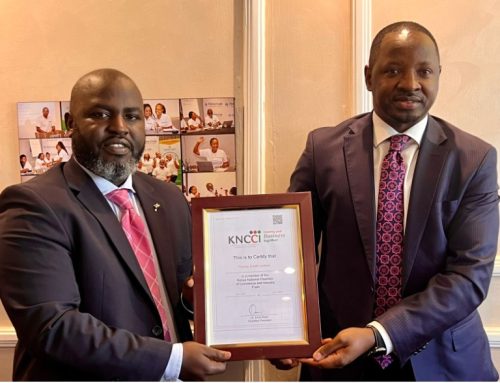Businesses play an important role in promoting human rights. They have the power to drive equality in both the workplace and in the community, and through offering employment opportunities it can support the advancement of social and economic rights.
On Wednesday 23rd November,2022 The Kenya National Chamber of Commerce & Industry (KNCCI) in partnership with the Kenya National Commission on Human Rights (KNCHR) and the United Nations Development Programme (UNDP) had a consultative breakfast forum with various business entities within Nairobi to discuss National Action Plan (NAP) on business & human rights. The NAP was approved by the Cabinet & thereafter presented to Parliament. The forum also focused to sensitize businesses on how to successfully face the corporate human rights challenge which is crucial to business success in the years ahead.
KNCHR Deputy Director Mr. Cyrus Maweu in his opening remarks stated that he was very delighted that Kenya is the first African country to set up a National Action Plan ( NAP) on business and human rights. He emphasized on businesses being keen on human rights matters, ‘ A business that threatens human rights threatens its own existence’
The Chamber 2nd Vice President Ms. Fatma Elmaawy in her remarks stated that businesses need to balance human rights & responsibilities for both employers & employees for a healthy business & work environment. She emphasized that the new business value & currency is ‘integrity’.
KNCHR ECOSOC Officer Ms. Christina Arrumm highlighted on the three pillars of the United Nations Guiding Principles (UNGPs) on business human rights which are;
- State duty to protect human rights.
- Corporate responsibility to respect human rights.
- Access to remedy.
KNCCI Ag. Chief Executive Officer Mr Patrick Nyangweso highlighted on the various challenges the businesses face in regards to forceful evacuations, harassment of the hawkers, Child labor, unfair wages, and the labor markets in Saudi Arabia He highlighted that the development of NAP under the UNGPs will promote developing laws, policies and regulations that effectuate standards on the role of the private sector in respecting human rights.
Businesses have a responsibility to respect human rights and provide remedy for any abuses resulting from their activities.







Leave A Comment